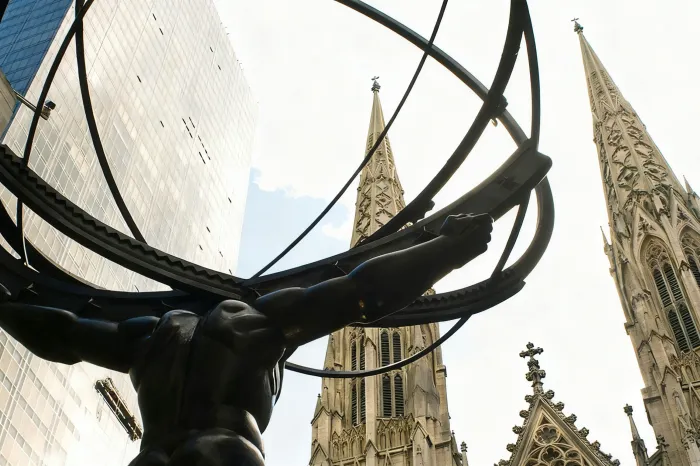A Divine RSVP: Did Jesus Forget to Set a Calendar Reminder?
In the millennia since a certain Nazarene carpenter became the central figure of one of Earth’s most widespread faiths, humanity has pondered a persistent mystery: When did Jesus actually say he’d be coming back? Did he drop a date in the group chat that everyone missed? Or was his return more in line with the dreaded, “I’ll swing by when I’m in town”—a promise no one ever schedules?
For centuries, Christians have speculated, theologians have debated, and at least one enthusiastic airplane seatmate has tried (unsuccessfully) to pin down the logistics of the Second Coming during a cross-country flight. Despite these efforts, the precise timeline remains as elusive as matching socks in a dryer.
The Scriptural Breadcrumbs: Coming Soon—But Not Too Soon
Let’s start in the source material. Throughout the Gospels, Jesus drops several hints about his return, none of which come with a Google Calendar invite. In Matthew 24, for instance, he offers this classic teaser: “But about that day or hour, no one knows, not even the angels in heaven, nor the Son, but only the Father.” In modern language: “Ask my Dad.”
Elsewhere, he assures his followers he’ll be back, just not, apparently, before the dessert course: “Watch therefore, for you do not know on what day your Lord is coming.” It’s the spiritual equivalent of waiting for your internet provider’s repairman: You know they’ll arrive… eventually. Sometimes, theologians argue Jesus means his return is imminent—just, you know, on cosmological timescales. Others suggest he was being intentionally vague, the original master of suspense.
That ambiguity gave rise to a 2,000-year game of religious phone tag. Every generation since has convinced itself they were living in The End Times, collecting apocalyptic signs like limited-edition trading cards. One can only imagine Jesus at the Last Supper, sipping wine and winking, “I’ll be back when you least expect it. Keep the faith—and the hummus.”
The Human Itch for Answers: Doomsday Planners and Prophecy Puzzles
Why, you might ask, are so many folks desperate to pin down the exact moment of the Second Coming? Partly it’s human nature: Once somebody promises an earth-shattering party, people want to know when to bring snacks. History is littered with self-appointed prophets who, convinced they cracked the divine code, sold off their earthly possessions and waited on hilltops for a trumpet blast.
The result? A recurring pattern of, “Oops, maybe next Tuesday.” From medieval astrologers to modern televangelists, predictions have come and gone like pop songs in summer. Each failed forecast only confirms what the Gospels—cheekily—assert: You’re not going to guess this one. Maybe Jesus just wants to see who’s patient enough to keep checking the mailbox.
Modern Christian philosophy has attempted, sometimes with Nietzschean bravado, to reconcile the yearning for certainty with the messiness of actual faith. As John Ehrett recently noted, true hope in the world isn’t fueled by countdown clocks to rapture, but by a “joyful, virile mastery of the world” and, yes, expecting a return that’s less scheduled and more “surprise pop-in.” Jesus, it seems, prefers the dramatic entrance.
The Second Coming, According to Miss Manners and Your Aunt at Thanksgiving
But what would Jesus’ return look like, really? Some expect clouds, glory, and headlines. Others, per the wisdom of airline etiquette, hope he keeps the conversation brief and allows for some in-flight entertainment.
Just ask the protagonist of the recent Miss Manners column, who found himself trapped between a movie and a “chatty Jesus freak” on a long-haul flight. No word if the zealot tried to break the news about a specific ETA, but it’s safe to say even the most enthusiastic believers haven’t received an exclusive tip-off. The advice, as always, is polite disengagement; even omnipresent wisdom shouldn’t interrupt the new Mission Impossible.
Yet maybe that’s the very point. As much as Christians might wish for a clear itinerary, Christianity itself has traditionally prized faith over forecasting. It’s a cosmic waiting game, one that encourages living well rather than living worried. Instead of standing on the rooftop with a telescope, perhaps the wise course is to tackle laundry, bake bread, and mow the lawn—just like the faithful in Green Lake County, quietly preparing for both ordinary Tuesdays and supernatural interventions.
Nietzsche, Christian Vitalists, and the Surprise Party Principle
In the grand scheme, it’s not just believers who wrestle with the uncertainty. As John Ehrett reflects, even Nietzsche—famous for declaring “God is dead”—couldn’t quite shake the dramatic appeal of Christ’s promised return, acknowledging it as a metaphorical lightning bolt to humanity.
Some modern Christians, taking cues from Nietzschean philosophy and its challenge to passivity, have tried to turn the expectation of Jesus’s return into a rally for “strength” and “confidence.” But as Ehrett observes, Jesus’ own teachings—most notably “Blessed are the meek”—emphasize humility over heroics, and love over loitering.
What’s Jesus up to in all this? Perhaps he’s coordinating the Most Epic Surprise Party in cosmic history. Like any great host, he’s keeping it under wraps until the timing is just right. In the meantime, don’t worry about being fashionably late or bringing the right casserole. The instructions remain: stay alert, but don’t forget to live while waiting.
Is That Him at the Door—or Just the Amazon Delivery Guy?
For those still hoping for a text message from above, there’s comfort (and comedy) in the fact that the mystery itself is part of the journey. If you’re the sort who wants Jesus to drop in on a weekday, maybe invest in some spiritual snacks and keep the porch light on. Or, as Emily from Green Lake County learned after months spent waiting for closure (and possibly a husband who preferred European adventures over Wisconsin winters), sometimes the answer is: “It’s not you, it’s me. And also, I’m not telling you when.”
Until the heavens actually split or the clouds start broadcasting a live feed from Jerusalem, humanity is left with faith, hope, and the perpetual expectation of something spectacular. Maybe the best takeaway is this: The Lord’s return is always just around the corner—he’s just taking the scenic route. And, in case you meet a Jesus enthusiast on a plane, be ready to recommend patience. Or politely pretend to watch the inflight movie.
So, when did Jesus say he would return? He didn’t. That—frankly—is part of the fun.





























